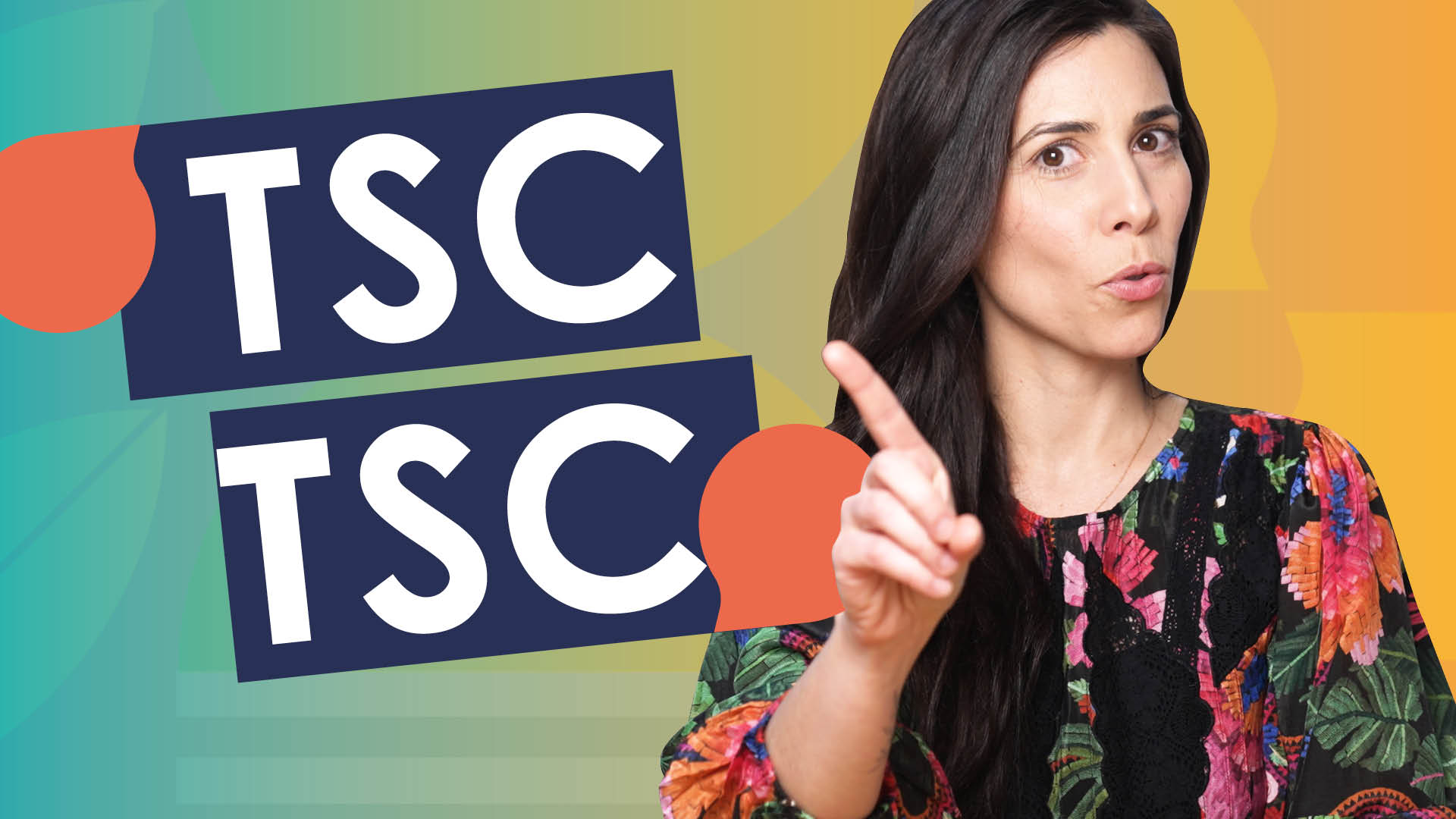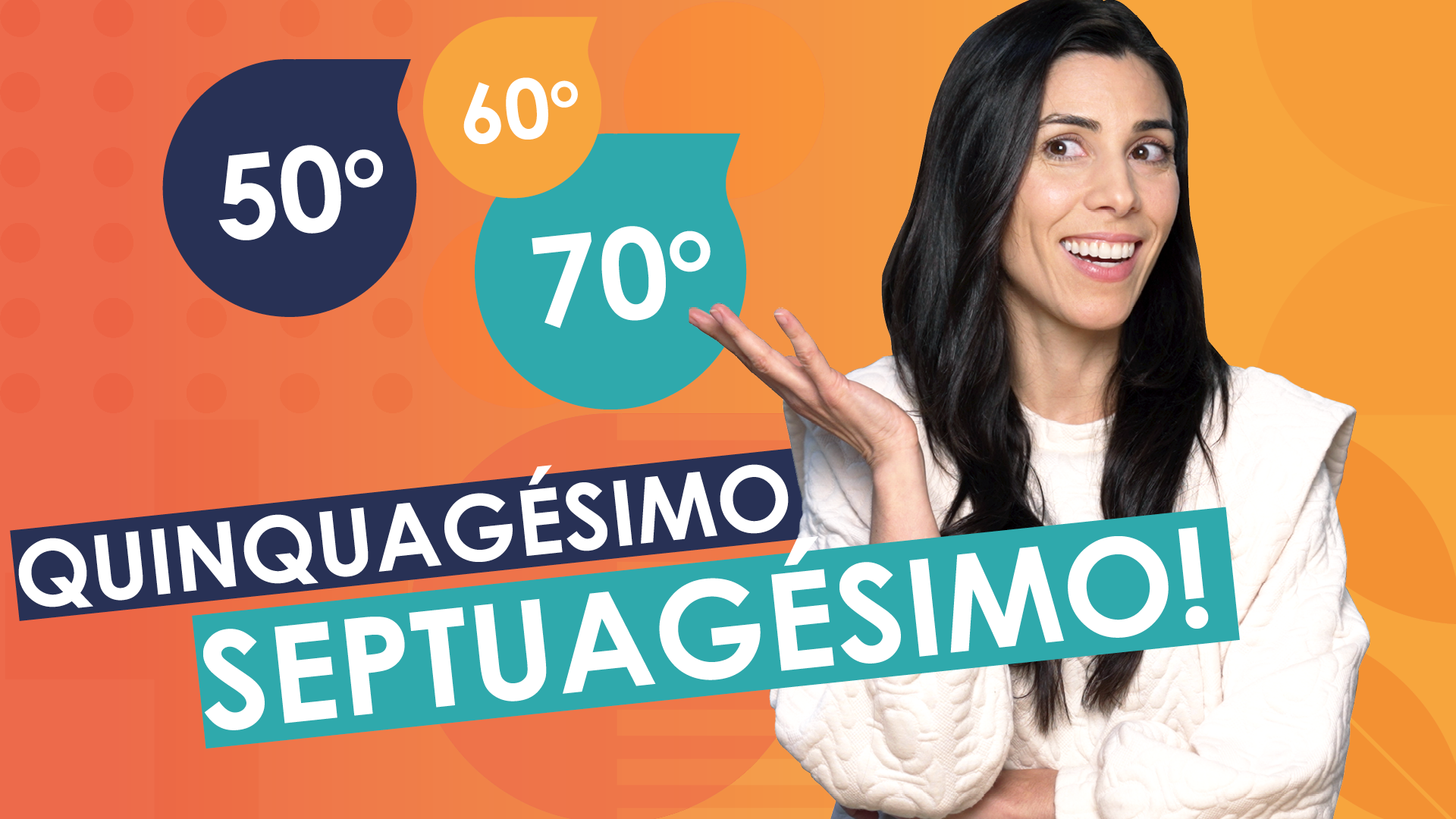Transcription of the Video
*Read original version in Portuguese at the end.
Hi everyone, Virginia here.
Today we’ll have a Q & A session. In this video, I’m going to answer three common questions that I get asked often.
Before we begin, I would like to remind you that I offer a free mini-course in pronunciation. To sign up, visit my website: school.speakingbrazilian.com.
If you like my videos, don’t forget to subscribe to my channel to receive notifications whenever I post a new video.
Let’s move on to the first question:
1. How long does it take for a person to learn Portuguese and speak fluently?
I’ve been asked this question many times. The answer I give is always the same: it depends. Many aspects can influence how long it takes you to learn a language.
For example, if you already speak any Romance language, such as Spanish or French, learning Portuguese is not that difficult.
However, in my opinion, the most important aspect is your commitment.
How long per day or per week do you study Portuguese? If you only study for one hour, once a week, it may take you years to speak Portuguese fluently. But if you study every day, you can become fluent in a few months. Most people find themselves in the middle.
To give you a more concrete example, in my last course for beginners, from September to December of last year, most of the students finished the course with the ability to have a basic conversation in Portuguese, after only 3 months of classes.
There is no secret or magic. The more time you devote to studying Portuguese, the faster you will learn.
Now, let’s move on to the second question:
2. Is there any difference between Brazilian Portuguese and European Portuguese?
The answer is yes, there are several differences. Although the language is officially the same, there are some minor differences in grammar and vocabulary.
But in my opinion, the biggest difference is the accent. To give you an idea, I’ll tell you a story.
I have a Portuguese friend who was in Brazil a few years ago, and he went to the bakery to buy bread, but the bakery attendant could not understand what he was saying. My friend heard the attendant telling the colleague next to him that the “client didn’t speak Portuguese well”.
Well, I don’t remember how my friend solved his problem, but with this example you can have an idea of how much the accent is different.
Of course, after you get a little bit accustomed to the accent and the small differences between the languages, Brazilians and Portuguese people can communicate naturally in Portuguese.
So, if you are learning Brazilian Portuguese and would like to know if you could communicate in Portugal, the answer is yes, but you will need to get a little bit used to the accent and the way the Portuguese speak.
Let’s move on to the third question:
3. How can I improve my pronunciation?
My students ask me this all the time! I would love to have a quick solution to help you with pronunciation, but there is no magic secret.
The only way to improve your pronunciation is with a lot of practice. But what kind of practice? How to practice pronunciation?
If you want to speak like a native, you need to imitate a native. There is an exercise called shadowing technique, which is basically listening to a native speaker and repeating what he/she said exactly the same way.
This is the best exercise to improve your pronunciation: a combination of imitation with repetition.
As most of you already know, I offer a free course in pronunciation, and in this course, I explain many details of Brazilian Portuguese pronunciation, and each module of the course has an imitation exercise, in which you will hear and repeat the same word several times, to improve your pronunciation.
This course has helped hundreds of people improve their pronunciation of Portuguese. If you haven’t taken this course yet, go to my website to sign up: school.speakingbrazilian.com. This course is completely free.
That’s it! These were the three questions I selected for this video. As of today, I’m going to make a Q & A video per month. If you want me to answer your question in the next video, leave your question in the comments below.
That’s it for today, everyone. Remember to give this video a thumbs up and subscribe to my channel! Every week, I post a new video with tips on grammar, expressions and pronunciation of Brazilian Portuguese.
See you next time! Bye-bye!
Perguntas & Respostas com Virginia
Oi pessoal, aqui é a Virginia.
Hoje nós vamos ter uma sessão de perguntas e respostas. Neste vídeo, eu vou responder três perguntas comuns que me fazem frequentemente.
Antes de começar, eu gostaria de lembrá-los que eu ofereço um minicurso de pronúncia gratuito. Para se inscrever, visite o meu site: school.speakingbrazilian.com.
Se você gosta dos meus vídeos, não esqueça de se inscrever em meu canal para receber notificações sempre que eu publicar um novo vídeo.
Vamos então para a primeira pergunta:
1. Quanto tempo leva para uma pessoa aprender português e falar fluentemente?
Já me fizeram essa pergunta muitas vezes. A resposta que eu dou é sempre a mesma: depende. Muitos aspectos influenciam no tempo que você leva para aprender uma língua.
Por exemplo, se você já fala alguma língua românica, como o espanhol ou francês, aprender português não é tão difícil.
No entanto, na minha opinião, o aspecto mais importante é o seu comprometimento.
Quando tempo por dia ou por semana você estuda português? Se você estuda apenas por uma hora, uma vez por semana, você pode demorar anos para falar português fluentemente. Mas se você estuda todos os dias, você pode se tornar fluente em poucos meses. A maioria das pessoas encontra-se no meio-termo.
Para dar um exemplo mais concreto, no meu último curso para iniciantes, de setembro a dezembro do ano passado, a maioria dos alunos terminou o curso com a habilidade de ter uma conversa básica em português, depois de apenas 3 meses de aulas.
Não tem segredo ou mágica. Quanto mais tempo você dedicar ao estudo do português, mais rapidamente você vai aprender.
Vamos agora para a segunda pergunta:
2. Existe alguma diferença entre o português brasileiro e o português europeu?
A resposta é sim, existem várias diferenças. Apesar da língua ser oficialmente a mesma, existem algumas pequenas diferenças de gramática e de vocabulário.
Mas, na minha opinião, a maior diferença é o sotaque. Para você ter uma ideia, eu vou contar uma estória.
Eu tenho um amigo português que esteve no Brasil há alguns anos, e ele foi à padaria comprar pão, mas o atendente da padaria não conseguia entender o que ele falava. O meu amigo ouviu o atendente comentar com o colega do lado que o “cliente não falava português direito”.
Bom, eu não lembro como o meu amigo resolveu o problema dele, mas com esse exemplo você pode ter uma ideia de como o sotaque é diferente.
É claro que, depois que você se acostuma um pouquinho com o sotaque e com as pequenas diferenças entre as línguas, os brasileiros e portugueses conseguem se comunicar naturalmente em português.
Então, se você está aprendendo o português brasileiro e gostaria de saber se você conseguiria se comunicar em Portugal, a resposta é sim, mas você vai precisar se acostumar um pouco com o sotaque e com o jeito que os portugueses falam.
Vamos passar à terceira pergunta:
3. Como posso melhorar minha pronúncia?
Os meus alunos me perguntam isso o tempo todo! Eu gostaria muito de ter uma solução rápida para ajudá-los com a pronúncia, mas não existe um segredo mágico.
A única maneira de melhorar a sua pronúncia é com muita prática. Mas que tipo de prática? Como praticar pronúncia?
Se você quer falar como um nativo, você precisa imitar um nativo. Existe um exercício chamado shadowing technique, que é basicamente ouvir um falante nativo e repetir o que ele disse exatamente da mesma forma.
Este é o melhor exercício para melhorar a sua pronúncia: uma combinação de imitação com repetição.
Como a maioria de vocês já sabe, eu ofereço um curso de pronúncia gratuito, e neste curso eu explico vários detalhes de pronúncia do português brasileiro, e cada módulo do curso tem um exercício de imitação, no qual você vai ouvir e repetir a mesma palavra várias vezes, para melhorar a sua pronúncia.
Este curso já ajudou centenas de pessoas a melhorar a pronúncia do português. Se você ainda não fez este curso, vai lá no meu site para se inscrever: school.speakingbrazilian.com. Este curso é totalmente gratuito.
É isso! Estas foram as três perguntas que eu selecionei para este vídeo. A partir de hoje, eu vou fazer um vídeo de perguntas e respostas por mês. Se você quer que eu responda a sua pergunta no próximo vídeo, deixe a sua pergunta nos comentários abaixo.
É isso por hoje, pessoal.Lembre se dar um likeneste vídeo e de se se inscrever em meu canal! Todas as semanas, eu posto um novo vídeo com dicas de gramática, expressões e pronúncia do português brasileiro.
Até a próxima! Tchau, tchau!


